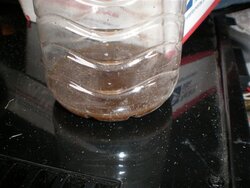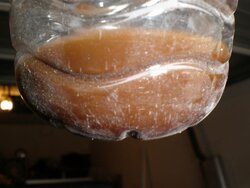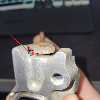Clover2010
New Member
- Joined
- May 20, 2010
- Messages
- 3
- Reaction score
- 0
- City, State
- Texas
- Year, Model & Trim Level
- 2002 Mercury Mountaineer
Hello Everyone
I just need an opinion. I was billed for a fuel filter replacement in Nov 09. I know that mileage will usually determine when it needs replacing. A couple of months ago I went for my oil change and was told the fuel filter was looking "dirty" and needed replacing. I said no as I could not remember exactly when it was done. I checked my paperwork and saw that it was replaced in Nov 09 and I that I was billed.
Today I went in to get some things topped up at my local lube shop and asked them to check it again as I now knew that I was billed for a new fuel filter in Nov approximately 6K miles ago. The manager showed me the filter and what they "believe" to be rust/dirty etc and that the filter is in need of replacement. I had it replaced as it is not "that" expensive.
I called the previous garage and they advised that if they billed me for the replacement then it was done (who knows) and that it is quite possible having driven my car for approximately 6K miles that it would need replacing again. The manager there advised that it should be replaced twice a year. What do you think? I have the old fuel filter from my car as I asked to take it with me.
Thanks!
I just need an opinion. I was billed for a fuel filter replacement in Nov 09. I know that mileage will usually determine when it needs replacing. A couple of months ago I went for my oil change and was told the fuel filter was looking "dirty" and needed replacing. I said no as I could not remember exactly when it was done. I checked my paperwork and saw that it was replaced in Nov 09 and I that I was billed.
Today I went in to get some things topped up at my local lube shop and asked them to check it again as I now knew that I was billed for a new fuel filter in Nov approximately 6K miles ago. The manager showed me the filter and what they "believe" to be rust/dirty etc and that the filter is in need of replacement. I had it replaced as it is not "that" expensive.
I called the previous garage and they advised that if they billed me for the replacement then it was done (who knows) and that it is quite possible having driven my car for approximately 6K miles that it would need replacing again. The manager there advised that it should be replaced twice a year. What do you think? I have the old fuel filter from my car as I asked to take it with me.
Thanks!














